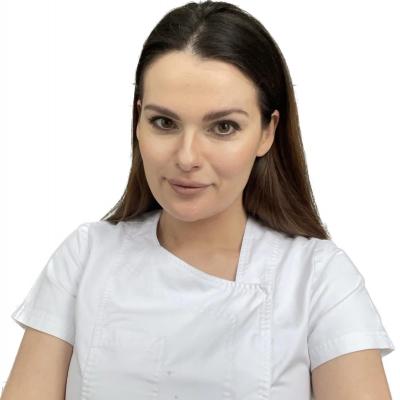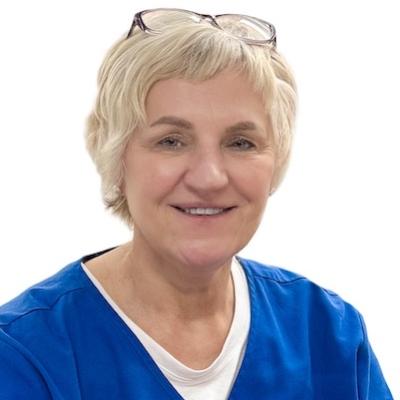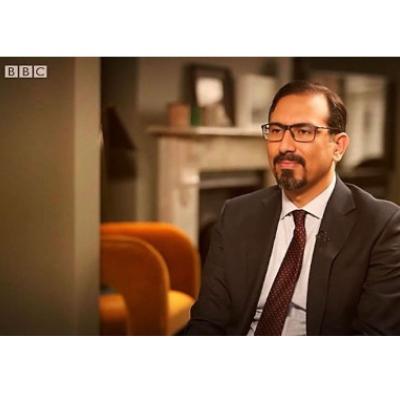Dental Care – Comprehensive Services for Adults and Children
Healthy teeth and gums are essential not only for aesthetics, but for overall health and well-being. Our dental clinic offers modern, comprehensive treatment in a comfortable setting — tailored to the individual needs of each patient.
We provide full-scope dental care: from prevention and routine check-ups, to restorative and aesthetic procedures, as well as specialist treatments. We use proven methods, advanced technology, and high-quality materials to ensure safe, effective, and long-lasting results. Our approach combines clinical precision with open communication and patient comfort.
Pay monthly for your dental treatment with 0% financing.
Appointment booking hours:
Monday - Friday 7:30am - 8pm
Saturday - 8am - 5pm
Sunday - 10am- 5pm
Our locations:
Polish Medical and Dental Clinic - Poland Medical London
377 High Road
Harrow
HA3 6EL
Tel.: 0208 903 4874
Tel./Fax: 0208 903 3455
Mobile: 077 466 231 02
Polish Medical and Dental Clinic - Poland Medical Coventry
30 Park Road
Coventry
CV1 2LD
Tel.: 024 7767 1780
Mobile: 077 126 585 38
Scope of Dental Services
We offer complete dental services for children, teens, and adults. Our goal is effective treatment, patient comfort, and long-term oral health. Our services include:
-
Conservative dentistry – cavity treatment, composite fillings, tooth reconstruction, and sensitivity management
-
Endodontics (root canal treatment) – precise treatment under microscope and digital radiography
-
Preventive care – scaling, air polishing, fluoride treatments, oral hygiene instruction
-
Aesthetic dentistry – teeth whitening, veneers, cosmetic restorations
-
Prosthetics – crowns, bridges, removable and fixed dentures
-
Oral surgery – tooth extractions, treatment of infections
-
Pediatric dentistry – child-friendly care, including cavity treatment, fissure sealing, and adaptation visits
-
Digital diagnostics – X-rays with modern equipment
-
Painless procedures – safe and effective anaesthesia tailored to the patient’s needs and age
How to Prepare for Your Dental Visit
Preparing properly for your appointment helps ensure efficient treatment and a positive experience. Here are some simple tips:
-
Brush your teeth before the visit – clean your teeth and tongue, avoid strong mouthwashes
-
Bring your medical records or X-rays – if available, especially for new patients
-
List your current medications and health conditions – this may affect treatment choices
-
Inform us of any allergies – especially to anaesthetics or dental materials
-
Arrive a few minutes early – especially for your first visit, to complete documentation calmly
-
Avoid heavy meals and stimulants before treatment – skip coffee, alcohol, or smoking just before your appointment
-
For children – talk to your child in advance about the visit and reassure them that they are safe
Dentist London - Frequently Asked Questions
What does a dentist do
Dentistry, also known as dental medicine and oral medicine, is a branch of medicine that involves the study, diagnosis, prevention, and treatment of diseases and conditions of the oral cavity. It commonly in the dentition (development and arrangement of teeth) as well as the oral mucosa, and of adjacent and related structures and tissues, particularly in associated maxillofacial (jaw and facial) area. The field of dentistry or dental medicine includes teeth as well as other aspects of the craniofacial complex including the temporomandibular joint and other supporting, muscular, lymphatic, nervous, vascular, and anatomical structures. The practitioner is called a dentist.
When to see a dentist
It is worth remembering that the dentist not only treats your dental problems but also cares about a proper profilaxis. That's why you should wait for the teeth to be seriously damaged, and the condition of the mucous membranes and gums will lead to health complications and painful treatments. It is best to have checkups at the dentist's office once a year, and even better every six months. This will save you pain and money.
You should always visit the dentist when there are cavities, periodontal changes, canker sores, bleeding gums, sensitive teeth and other problems in the mouth. Dentist will help you choose the best method of treatment to repair the damage and save our health and a beautiful smile.
Preventive dentistry
Regular visits at the dental clinic are the best form of protection against serious oral diseases. During the visit, dentist will provide the patient with tips on proper dental and oral care, as well as information about basic preventive treatments. Preventive treatments are painless, usually short and do not cause complications.
As a part of preventive treatments, the dentist performs the following procedures:
• Removal of tartar (by scaling or sandblasting)
• Fluoridation
• Sealing of the tooth grooves
Scaling is a procedure involving the removal of tartar deposits using ultrasound. The treatment ends with polishing of the cleaned surfaces, to prevent the build-up of plaque in the future.
Sandblasting is a procedure involving the removal of soft sediments and discoloration with sandblasters, which remove the sediment under pressure, using a mixture of powder and water.
Tooth fluoridation is a procedure involving inserting fluoride onto the cleaned teeth, which prevents decay on smooth, tangential and gingival surfaces.
Sealing, which consists of covering and sealing dental grooves, gaps and cavities with lacquer, in both primary and permanent teeth. Sealing eliminates the development of decay in hard-to-reach places.
Most common dental problems
• tooth decay
• pulp inflammation, tooth gangrene, abscesses
• periodontal disease
• enamel erosion
• mouth ulcers
• gingivitis
• oral cancer
Decay is the most common problem. It is caused by bacteria but can be treated effectively in the initial period of development. After removing the lesion, dentist inserts a filling, and in case of extensive lesions, they can perform root canal treatment. This treatment involves removing diseased pulp, restoring root canal, filling it with dental paste and closing the tooth with the filling.
In case of extensive lesions and more severe diseases of the teeth, periodontium and oral cavity, surgical procedures are performed under local or general anaesthesia by an oral surgeon.
Additional tests
In their practice, dentists use many examination techniques. Basic examination includes a medical history, teeth check-up and assessment of the gums, mucous membranes, and dental arches condition. This examination is performed with the use of dental instruments and usually is completely painless.
Sometimes more complex tools are needed to assess the condition of the oral cavity. The doctor can then use an X-ray to take a picture of the tooth. In cases of serious periodontitis, dental diseases and in oral surgery, the doctor may order additional tests.
Do I need to prepare in any special way before my appointment?
It’s recommended to brush your teeth beforehand and bring any medical or dental records, if available. For certain procedures like root canal or oral surgery, fasting may be advised — please ask when booking your appointment.
Is dental treatment painful?
All procedures are performed under local anaesthesia, which eliminates pain. For patients with increased sensitivity or dental anxiety, we offer additional comfort measures.
How often should I visit the dentist?
Routine check-ups are recommended every 6 months. If you have ongoing dental issues, your dentist will suggest an individual care schedule.
Do you treat children?
Yes, we provide dental care for children, including preventive treatments, cavity care, and adaptation visits to help build trust and reduce fear.
How long does a root canal treatment take?
Depending on the case, root canal therapy may be completed in one or several visits. We use a dental microscope and digital technology to enhance precision and reduce treatment time.
Do you offer X-rays on-site?
Yes, we have modern diagnostic equipment for both intraoral and panoramic X-rays, available directly in the clinic.




